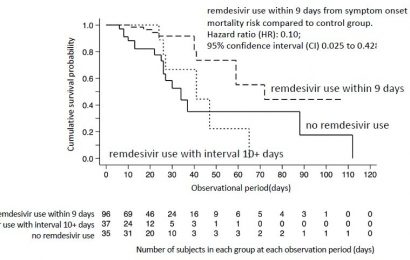Psychosocial stress – typically resulting from difficulty coping with challenging environments – may work synergistically to put women at significantly higher risk of developing coronary heart disease, according to a study by researchers at Drexel University's Dornsife School of Public Health, recently published in the Journal of the American Heart Association.
The study specifically suggests that the effects of job strain and social strain — the negative aspect of social relationships — on women is a powerful one-two punch. Together they are associated with a 21% higher risk of developing coronary heart disease. Job strain occurs when a woman has inadequate power in the workplace to respond to the job's demands and expectations.
The study also found that high-stress life events, such as a spouse's death, divorce/separation or physical or verbal abuse, as well as social strain, were each independently linked with a 12% and 9% higher risk of coronary heart disease, respectively.
The Drexel study used data from a nationally representative sample of 80,825 postmenopausal women from the Women's Health Initiative Observational Study, which tracked participants from 1991 to 2015, to find better methods of preventing cancer, heart disease and osteoporosis in women. In the current follow-up study, Drexel researchers evaluated the effect of psychosocial stress from job strain, stressful life events and social strain (through a survey), and associations among these forms of stress, on coronary heart disease.
Nearly 5% of the women developed coronary heart disease during the 14-year, seven-month study. Adjusting for age, time at a job, and socioeconomic characteristics, high-stress life events were associated with a 12% increased coronary heart disease risk, and high social strain was associated with a 9% increased risk of coronary heart disease. Work strain was not independently associated with coronary heart disease.
Coronary heart disease, the leading cause of death in the United States, occurs with the heart's arteries become narrow and cannot bring sufficient oxygenated blood to the heart. The latest work builds on earlier studies linking psychosocial stress to coronary heart disease by finding out how job strain and social strain work together to compound disease risk.
The COVID-19 pandemic has highlighted ongoing stresses for women in balancing paid work and social stressors. We know from other studies that work strain may play a role in developing CHD, but now we can better pinpoint the combined impact of stress at work and at home on these poor health outcomes. My hope is that these findings are a call for better methods of monitoring stress in the workplace and remind us of the dual-burden working women face as a result of their unpaid work as caregivers at home."
Yvonne Michael, ScD, SM, senior author, associate professor, Dornsife School of Public Health
The study's authors say that future studies should look at the effects of shift work on coronary heart disease and explore the effects of job demands according to gender.
"Our findings are a critical reminder to women, and those who care about them, that the threat of stress to human health should not go ignored," said lead author Conglong Wang, PhD, a recent Dornsife graduate who conducted the research while at Drexel. "This is particularly pertinent during the stressors caused by a pandemic."
Drexel University
Wang, C., et al. (2021) Associations of Job Strain, Stressful Life Events, and Social Strain With Coronary Heart Disease in the Women’s Health Initiative Observational Study. Journal of the American Heart Association. doi.org/10.1161/JAHA.120.017780.
Posted in: Medical Research News | Women's Health News
Tags: Blood, Cancer, Compound, Coronary Heart Disease, Health and Human Services, Heart, Heart Disease, Osteoporosis, Pandemic, Public Health, Research, Stress
Source: Read Full Article


